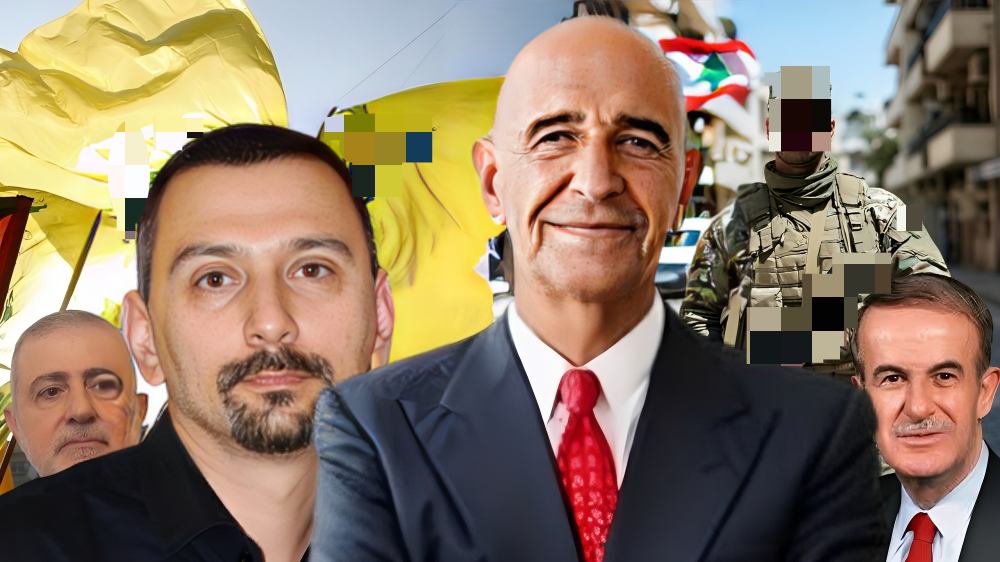From Hafez al-Assad to Ziad Rahbani: Has Hezbollah’s Era Come to an End?
This article addresses the profound transformations in Lebanon following the decline of Hezbollah's influence after its major setback in the war with Israel. It also examines how this shift could impact the party's future.
Bilal Nour Al Deen
8/8/20253 min read
Changing the name of Hafez al-Assad Avenue to Ziad Rahbani Avenue is no coincidence. It is a sign that Lebanon has entered a new phase. Such a step would have been unthinkable before October 8, 2023. Yes—everything has become possible after Hezbollah’s collapse. Today, the party, its supporters, and the Lebanese stand at the threshold of a stage best described as: Who would believe it?!
A Genuine Identity Crisis
Hezbollah fought Israel fiercely in 2006. But its numerical and geographical expansion in the region exposed its security vulnerabilities and greatly weakened it. The result was a severe setback after it joined the “support front” in late 2023 in solidarity with Gaza. Despite all the sacrifices, many Lebanese now view the weapons as a burden, while others believe they have lost their deterrent power. Today, the Lebanese government has agreed to the U.S. proposal to restrict all arms to the state — a natural outcome of a humiliating agreement Lebanon signed at the end of 2024, itself a direct reflection of a clear military defeat.
Although the government took this decision without consulting a broad segment of the Lebanese population, the move will proceed sooner or later, regardless of potential negative consequences. Thus, the party will lose one of its most fundamental pillars: its military strength. This change may not sit well with its base, which has sacrificed dearly to preserve the weapons. It could even trigger a backlash from within its own community — perhaps not in the short or medium term, but eventually. Disarming means the end of the party as the Lebanese have known it. In other words, it will lose the influence it has wielded for decades.
The Slap: The State and the “Mini-State”
During the Tayouneh events, the army stood helpless in front of armed “civil militias.” Some soldiers even pleaded with these armed elements not to open fire. This was not the image the Lebanese wanted to see. More recently, some young men, acting on “individual” impulses, repeatedly tried to block the Beirut Airport road to protest the ban on Iranian aircraft landings and passenger inspections. Whatever one thinks of the Lebanese government’s decisions in this matter, the army deployed its “Ranger” armored vehicle on the road, declaring that no road would be closed again in Lebanon.
The real turning point came when a protester who refused to comply with the order to clear the road was slapped. Historians always speak of a “before” and “after.” For instance, they say Germany before the fall of the Berlin Wall was not the same as after. The same applies to Lebanon’s political life. Lebanon before the slap on the airport road is not the same as after. It is the era of the state — or at least it appears so. Lebanon is no longer, as some saw it, a branch of Tehran. Iran, especially after the latest war with Israel, is too preoccupied with its internal affairs to even consider responding to Hezbollah.
The Power of Law… Not of Arms
The head of Hezbollah’s Liaison and Coordination Unit, Wafic Safa, sought to “overturn” the judicial investigation led by Judge Tarek Bitar into the Beirut port explosion. He said it openly in the courtyard of the Palace of Justice. No one had ever done this before. In fact, no one had even dared. It was his surplus of power that allowed him to take such a step. This was a major provocation to the families of the explosion’s victims. It appeared to be part of Hezbollah’s ongoing strategy of creating new enemies. And now? Wafic Safa can no longer stand in the way of the investigation, and Judge Bitar could issue his indictment at any moment. This would not have happened without Hezbollah’s weakening.
The Future: End of the Political Wing?
The era when Hezbollah decided its own course is over. This may be hard to believe, but the party may soon reach a point where it cannot even determine its internal fate. At first glance, this may seem like fantasy, yet recent months have shown that anything is possible. The United States, which holds sway over Lebanon, has “generously” agreed to allow Hezbollah to continue its political work, with the possibility of one day engaging with it. Yes, this is the reality!
If the door is opened to defining Hezbollah’s political role in the near future, nothing may prevent determining its new form in the distant future. Soon, the party may not even be able to maintain its scout organization — or at least Washington may set the number of its members. These scenarios are far from impossible, and time will reveal their likelihood.
As Ibn Khaldun said: Tyrants bring invaders. Perhaps in Lebanon, we have done just that — or at least, those who fought to expel the occupier have done so!


Contact me via email
SUBSCRIBE TO MY NEWSLETTER
hello@bilalnouraldeen.com
© 2025. All rights reserved.